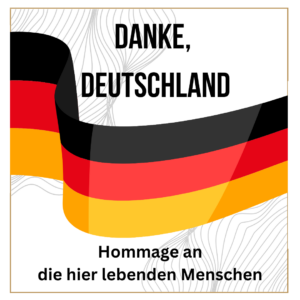The reunification of Germany is one of the unique events in world history. During the Cold War, the country and its capital were divided into two halves. And yet this time, world history had a happy hand in store. Reunification ensured that Germany was reunited. The capital of the Federal Republic became - how could it be otherwise - Berlin again. In Berlin, the special history of this reunification can still be traced today.
Many people from all over the world associate Germany primarily with Berlin and the Wall. The fact that the Wall was torn down moved many people to tears. People all over the world rejoice at the reunification of the city. At the same time, people recognise the special political achievement that the country has made. It was not easy to unite the two different parts of the country. In some areas there are still considerable differences today. However, the country made a clear political declaration of intent to bring East and West together. This will has been realised with great effort. Even if the road to this goal was not easy, the country has nevertheless travelled it steadily. The development of the East and the adoption of certain rights in the West were also part of this reunification. To this day, some older people in certain federal states still have reservations about the East or the West.
In the minds of most young people, however, East and West have increasingly grown together. Today's teenagers make no distinction between East Berlin and West Berlin. Both parts are equally hip. Anyone who moves to Berlin wants to have an affordable flat. Some former eastern neighbourhoods offer good opportunities here. Many older people in Germany are also happy about the outcome of reunification. They have good reasons for this. It is simply impossible to imagine what would have happened if, instead of reunification, there had been an armed conflict on the territory of today's Federal Republic. The pent-up arsenal of weapons from the Cold War could have been unleashed here in a heated military conflict that would have cost many lives. Despite all the difficulties, the peaceful reunification of Germany is a particularly fortunate moment in German history. Reunification is also of great importance for peaceful coexistence in Europe.
As a reunified country, Germany in turn assumes a special political responsibility. It assumes responsibility for advocating an open Europe without military conflicts. The fact that the country was given the gift of peaceful reunification makes it responsible for such a policy in favour of an open Europe. This is one of the reasons why all German Chancellors since reunification have campaigned in favour of shaping a peaceful Europe and a special European idea. In doing so, they have demonstrated a strong awareness of the country's history. We must be grateful to history for reunification, just as we should support this commitment to a common Europe and a peaceful global society.
The fact that Germany fulfils this responsibility in this way and not otherwise is an important historical fact of global significance. The heads of state of many European countries are grateful to the country that founded two world wars.

